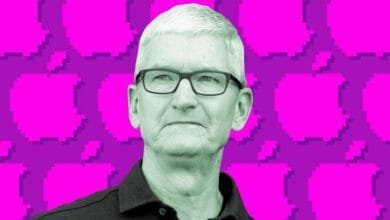Inside the AI Hiring Frenzy

▼ Summary
– A startup used a cryptic billboard recruiting stunt that successfully generated millions of online views, 10,000 email sign-ups, and 60 candidate interviews.
– Startup founders report that hiring top technical talent is extremely challenging, even for well-funded companies, due to intense competition from major AI firms.
– Companies are resorting to personalized gestures and high-end perks to attract candidates, but often cannot compete with the compensation offered by industry giants like OpenAI.
– Founders emphasize that the most effective hiring strategy often involves tapping into personal networks and employee connections rather than relying on flashy tactics.
– The ideal candidate is an “AI product engineer” who combines deep technical skills with product management abilities, a rare profile with numerous job offers at any time.
The competition for elite artificial intelligence talent has reached a fever pitch, with startups deploying increasingly creative and costly strategies to attract a select group of professionals. A cryptic billboard overlooking San Francisco’s Nob Hill, featuring only a URL and a string of numbers, exemplifies the lengths companies will go to stand out. Alfred Wahlforss, CEO of the startup Listen Labs, confirmed this unconventional recruiting stunt successfully generated millions of online views, thousands of email sign-ups, and dozens of interviews after he promised a trip to Berlin and entry to the famed Berghain nightclub for anyone who solved the puzzle.
For founders of even well-funded ventures, the battle for technical expertise is intensely difficult. Wahlforss, whose company secured $27 million from Sequoia, revealed they are investing significant resources not in promoting their brand, but in simply getting on the radar of engineers. He described the hiring landscape as “extremely challenging,” noting that a high-school dropout friend now earns roughly $2 million annually at OpenAI. The emotional toll is real; founders frequently spend hours with candidates only to see them accept positions at giants like Anthropic.
This pattern of rejection is widespread. Austin Hughes, CEO of the AI sales platform Unify, shared an anecdote about commissioning a custom painting for a highly sought-after candidate. Despite the personalized effort, OpenAI presented an offer triple Unify’s compensation package. The candidate accepted the lucrative offer and kept the artwork.
Jesse Zhang, leading the fast-growing, $1.5 billion-valued startup Decagon, faces identical pressures. He admitted that recruiting is a constant daily concern. His team has employed traditional incentives like exclusive dinners with their investor, Accel, and courtside Golden State Warriors tickets. Zhang even drove to the South Bay to meet with a candidate’s family. However, he found the most effective method far less glamorous: nearly all senior hires among their first 100 employees were people he already knew personally. Hughes’s team at Unify uses a systematic approach, exporting LinkedIn networks into a shared spreadsheet to identify candidates with the strongest internal connections.
The target of this fierce competition is a specific professional archetype: the AI product engineer. This individual combines deep technical skill with a product-centric mindset, capable of rapidly deploying the latest AI tools without sacrificing quality. Wahlforss estimates this talent pool numbers only a few thousand people globally, each likely fielding around ten job offers simultaneously.
While OpenAI and Anthropic remain top destinations for these experts, many founders observe that the major AI labs are starting to resemble other large tech corporations. The strategic advantage for a startup, according to Wahlforss, is the ability to promise a recruit they can operate “almost like a mini founder” and oversee products from conception to completion. Although having prominent investors provides some help, there is a growing consensus that a impressive cap table is less decisive now that so many startups are flush with capital.
Zhang believes this hiring frenzy has an expiration date. He points to an oversaturation of capital and a proliferation of AI companies, predicting an inevitable market correction. The central uncertainty, he notes, is that no one can pinpoint exactly when that bubble will burst.
(Source: The Verge)





